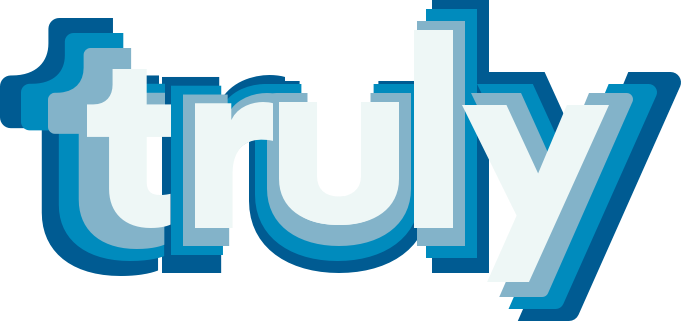Introduction
Coaching has evolved into one of the most sought-after methods for personal and professional development. Whether you are looking to make a career shift, improve leadership skills, or enhance your overall well-being, coaching offers a structured framework to help you define and reach your goals. In this pillar article, we will delve into the essence of coaching—its benefits, types, techniques, and the steps to find a coach who’s right for you. We’ll also link to reputable external resources so you can deepen your knowledge and see the proof behind the power of coaching.
What Is Coaching?
Coaching is a collaborative, goal-oriented process that helps individuals or teams clarify objectives, develop strategies, and take meaningful action toward a desired outcome. Unlike therapy—which focuses on emotional healing and past experiences—coaching is future-focused, emphasizing personal growth, accountability, and forward momentum.
According to the International Coaching Federation (ICF), one of the leading global organizations setting standards for the coaching profession, coaching is a “thought-provoking and creative process that inspires clients to maximize their personal and professional potential.”
Why Coaching Matters
Coaching matters because it bridges the gap between where you are now and where you want to be. Here are some of the top reasons people turn to coaching:
- Clarity of Purpose: Coaching helps you identify core values and define meaningful goals that align with who you are.
- Accountability: A coach keeps you on track and ensures you follow through on your intentions.
- Skill Development: Many coaching engagements focus on honing leadership, communication, or problem-solving skills.
- Self-Discovery: Coaching prompts introspection, helping you break limiting beliefs and discover hidden potential.
- Objective Feedback: A good coach will tell it like it is—no sugar-coating. This honest feedback can be more beneficial than advice from friends or family.
The ROI of Coaching
A study from the International Journal of Evidence Based Coaching and Mentoring reveals that coaching can lead to improved work performance, better time management, and increased team effectiveness. Furthermore, organizations like Google, Apple, and IBM have invested heavily in coaching for their leadership teams, citing tangible increases in productivity and employee engagement.
Types of Coaching
Coaching is not a one-size-fits-all practice. Below are some of the most popular types of coaching, each addressing a distinct set of needs.
1. Life Coaching
Life Coaching focuses on personal goals such as achieving a better work-life balance, improving relationships, or enhancing self-confidence. It often addresses larger life transitions like changing careers or navigating a major personal transformation.
- Common Topics: Emotional well-being, self-discovery, personal development.
- Who Needs It?: Anyone feeling stuck, confused, or eager to align life choices with personal values.
2. Career Coaching
If you are looking to pivot into a new role or climb the corporate ladder, Career Coaching can help. Career coaches guide you in exploring job opportunities, improving interview skills, and understanding your personal brand.
- Common Topics: Resume building, LinkedIn optimization, job-search strategies.
- Who Needs It?: Recent graduates, mid-career professionals, or those returning to the workforce.
3. Executive Coaching
Executive Coaching is tailored for high-level professionals—CEOs, managers, and entrepreneurs—seeking to refine leadership styles, develop emotional intelligence, and manage teams effectively.
- Common Topics: Strategic leadership, communication, conflict resolution.
- Who Needs It?: Leaders who want to improve organizational performance and company culture.
4. Business Coaching
While similar to executive coaching, Business Coaching often focuses on smaller business owners and entrepreneurs, working on everything from business plans to scaling strategies.
- Common Topics: Revenue growth, team development, branding, and market expansion.
- Who Needs It?: Start-up founders, small business owners, or solopreneurs looking to scale sustainably.
5. Health and Wellness Coaching
Health and Wellness Coaching empowers individuals to adopt healthier habits. Whether it’s nutritional guidance, fitness programs, or stress management, these coaches offer a holistic approach to well-being.
- Common Topics: Meal planning, exercise routines, mental health strategies.
- Who Needs It?: Anyone looking to improve or maintain a healthy lifestyle.
Key Coaching Techniques and Frameworks
While each coach has their unique style, several fundamental techniques are common in coaching engagements. Below are some widely recognized methodologies:
- GROW Model
- Goal: Define your objective.
- Reality: Assess your current situation.
- Options: Brainstorm multiple strategies.
- Will: Commit to the chosen plan of action.
- SMART Goals
- Specific
- Measurable
- Achievable
- Relevant
- Time-Bound
- Neuroscience-Based Coaching
- Uses insights from neuroscience to understand how the brain functions during decision-making, stress, and motivation.
- Positive Psychology
- Builds on strengths rather than focusing on weaknesses, enabling a more optimistic approach to problem-solving and growth.
Choosing the Right Coach
Not all coaches are created equal. Some are certified through accredited programs, while others rely on a wealth of real-world experience. To ensure you find the right fit:
- Check Credentials: Look for certifications from reputable organizations like the International Coaching Federation or other accredited bodies.
- Experience and Expertise: If you’re seeking a business coach, prioritize someone who has entrepreneurship or corporate leadership experience.
- Coaching Style: Some coaches are more direct, while others are nurturing. Align your preferences with the coach’s style.
- Testimonials and Reviews: Read what others have said. Genuine success stories offer strong validation of a coach’s skill.
- Initial Consultation: Many coaches offer a discovery call or session. Use this opportunity to gauge compatibility and clarify expectations.
The Coaching Process: What to Expect
- Discovery Session: You and your coach discuss objectives and determine if you are a good fit.
- Assessment: Depending on the type of coaching, you may take personality or skill assessments (e.g., Myers-Briggs, DiSC).
- Goal Setting: Together, you establish benchmarks and milestones for your coaching journey.
- Action Steps: The coach provides actionable feedback and challenges you to break old habits and adopt new ones.
- Review and Adjust: Periodic check-ins measure progress and adjust goals or techniques as needed.
The Future of Coaching
Coaching is on an upward trajectory, especially as remote work, digital communication platforms, and global collaboration become more prevalent. Virtual coaching (via video calls, phone, or messaging) allows for increased flexibility and the opportunity to work with the best coach for you—no matter where they are in the world.
Emerging Trends
- AI-Powered Coaching Platforms: Tools that offer data-driven insights and personalized learning paths.
- Group Coaching: Collaborative sessions where individuals with similar goals or challenges support each other under the guidance of a coach.
- Niche Specializations: More coaches are niching down—like fertility coaching, mindful entrepreneurship coaching, or digital nomad coaching—catering to very specific needs.
How JoinTruly.com Fits In
At JoinTruly.com, we believe that everyone deserves personalized guidance to thrive in their personal and professional lives. Our platform is designed to connect you with qualified coaches from diverse backgrounds and specializations. Whether you’re a solopreneur seeking business growth or a professional aiming for executive-level leadership, our ecosystem ensures you find a coaching match that aligns with your goals.
Explore our platform:
- Compare coaching approaches and experience.
- Read testimonials and success stories.
- Schedule a discovery call to get started immediately.
External Resources
- International Coaching Federation (ICF) – The gold standard for coaching certifications and ethics.
- Harvard Business Review on Coaching – Scholarly articles discussing coaching strategies and research.
- Positive Psychology – In-depth articles on how positive psychology influences coaching outcomes.
- International Journal of Evidence Based Coaching and Mentoring – Peer-reviewed research on coaching effectiveness and methodologies.
Final Thoughts
Coaching is more than just guidance; it’s a transformative partnership that propels you toward your highest potential. By understanding the various types of coaching, key techniques, and how to choose the right coach, you’re on the road to making a well-informed decision that can change your life and career trajectory.
At JoinTruly.com, we’re committed to making that journey smoother by connecting you to a world of coaching experts who can champion your growth. If you’re serious about investing in yourself—no matter how big or small your goal—there’s a coach out there whose expertise and style will align perfectly with your aspirations.
Ready to discover the power of coaching? JoinTruly.com is your next step. Start exploring, connect with coaches, and begin your transformative journey today.


2 thoughts on “The Ultimate Guide to Coaching: Everything You Need to Know to Transform Your Life and Career”